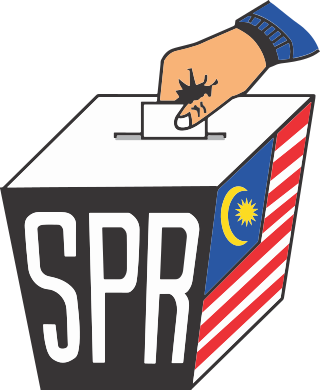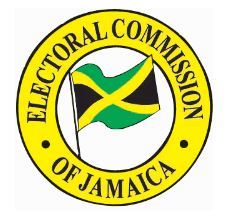
The Legislative Council, or upper house, is one of the two chambers of the Parliament of South Australia. Its central purpose is to act as a house of review for legislation passed through the lower house, the House of Assembly. It sits in Parliament House in the state capital, Adelaide.

The Australian Electoral Commission (AEC) is the independent statutory authority and agency of the Australian Government responsible for the management of federal Australian elections, by-elections and referendums.
Elections in Australia take place periodically to elect the legislature of the Commonwealth of Australia, as well as for each Australian state and territory and for local government councils. Elections in all jurisdictions follow similar principles, although there are minor variations between them. The elections for the Australian Parliament are held under the federal electoral system, which is uniform throughout the country, and the elections for state and territory Parliaments are held under the electoral system of each state and territory. An election day is always a Saturday, but early voting is allowed in the lead-up to it.

The Parliament of Victoria is the bicameral legislature of the Australian state of Victoria that follows a Westminster-derived parliamentary system. It consists of the King, represented by the governor of Victoria, the Legislative Assembly and the Legislative Council. It has a fused executive drawn from members of both chambers. The parliament meets at Parliament House in the state capital Melbourne. The current Parliament was elected on 26 November 2022, sworn in on 20 December 2022 and is the 60th parliament in Victoria.
The Division of Boothby is an Australian federal electoral division in South Australia. The division was one of the seven established when the former Division of South Australia was redistributed on 2 October 1903 and is named after William Boothby (1829–1903), the Returning Officer for the first federal election.
The Government of South Australia, also referred to as the South Australian Government or the SA Government, is the executive branch of the state of South Australia. It is modelled on the Westminster system, meaning that the highest ranking members of the executive are drawn from an elected state parliament. Specifically the party or coalition which holds a majority of the House of Assembly.

The Parliament of South Australia is the bicameral legislature of the Australian state of South Australia. It consists of the 47-seat House of Assembly and the 22-seat Legislative Council. General elections are held every 4 years, with all of the lower house and half of the upper house filled at each election. It follows a Westminster system of parliamentary government with the executive branch required to both sit in parliament and hold the confidence of the House of Assembly. The parliament is based at Parliament House on North Terrace in the state capital of Adelaide.

Since its establishment in 1947, Pakistan has had a non-symmetric federal government and is a federal parliamentary democratic republic. At the national level, the people of Pakistan elect a bicameral legislature, the Parliament of Pakistan. The parliament consists of a lower house called the National Assembly, which is elected directly via first-past-the-post voting, and an upper house called the Senate, whose members are chosen by elected provincial legislators. The head of government, the Prime Minister, is elected by the majority members of the National Assembly and the head of state, the President, is elected by the Electoral College, which consists of both houses of Parliament together with the four provincial assemblies. In addition to the national parliament and the provincial assemblies, Pakistan also has more than five thousand elected local governments.
The Division of Sturt is an Australian electoral division in South Australia. It was proclaimed at the South Australian redistribution of 11 May 1949. Sturt was named for Captain Charles Sturt, a nineteenth century British Military officer and explorer.
The Electoral Commission is an independent Crown entity set up by the New Zealand Parliament. It is responsible for the administration of parliamentary elections and referendums, promoting compliance with electoral laws, servicing the work of the Representation Commission, and the provision of advice, reports and public education on electoral matters. The commission also assists electoral agencies of other countries on a reciprocal basis with their electoral events.

In various parliamentary systems, a returning officer is responsible for overseeing elections in one or more constituencies.

The Election Commission of Malaysia, abbreviated SPR or EC, is a commission set up for ensuring fair and equitable operations in undertaking the elections in Malaysia. The agency falls under the purview of the Prime Minister's Department.

The Public Service Commission, called the State Services Commission until 2020, is the central public service department of New Zealand charged with overseeing, managing, and improving the performance of the state sector of New Zealand and its organisations.

The New South Wales Electoral Commission, known as the NSWEC or the NSW Electoral Commission is a statutory agency with responsibility for the administration, organisation, and supervision of elections in New South Wales. It reports to the NSW Department of Premier and Cabinet.

The Court of Disputed Returns is a special jurisdiction of the High Court of Australia. The High Court, sitting as the Court of Disputed Returns, hears challenges regarding the validity of federal elections. The jurisdiction is twofold: (1) on a petition to the Court by an individual with a relevant interest or by the Australian Electoral Commission, or (2) on a reference by either house of the Commonwealth Parliament. This jurisdiction was initially established by Part XVI of the Commonwealth Electoral Act 1902 and is now contained in Part XXII of the Commonwealth Electoral Act 1918. Challenges regarding the validity of state elections are heard by the supreme court of that state, sitting as that state's court of disputed returns.

The 2014 South Australian state election elected members to the 53rd Parliament of South Australia on 15 March 2014, to fill all 47 seats in the House of Assembly and 11 of 22 seats in the Legislative Council. The 12-year-incumbent Australian Labor Party (SA) government, led by Premier Jay Weatherill, won its fourth consecutive four-year term in government, a record 16 years of Labor government, defeating the opposition Liberal Party of Australia (SA), led by Opposition Leader Steven Marshall.

William Robinson Boothby was Electoral Commissioner for South Australia, in charge of every parliamentary election from 1856 to 1903.

The Independent Commission Against Corruption (ICAC) is a South Australian integrity agency and law enforcement body responsible for the prevention and investigation of corruption in public administration. It receives referrals from the Office for Public Integrity and can on-refer matters to the South Australia Police (SAPOL). ICAC was established by the Government of South Australia in 2013, and until 2021, could also investigate potential issues of misconduct and maladministration. Corruption investigations are undertaken in private and strict confidentiality provisions prevent unlawful disclosure or publication, resulting in a largely secret organisation. It is headed by a commissioner, an independent statutory officer responsible to the Parliament of South Australia. Its functions and activities are subject to the oversight of the Inspector.

The Electoral Commission of Jamaica (ECJ) is the independent statutory agency of the Government of Jamaica responsible for organising, conducting and supervising elections, by-elections and referendums.
Nadia Peace Clancy is an Australian politician and former political adviser. She has been a Labor member of the South Australian House of Assembly since the 2022 state election, representing Elder. With a swing of 7.5 per cent, she defeated the incumbent Liberal Party member Carolyn Power, who had held the seat since 2018 with a margin of 1.9 per cent. Clancy was the unsuccessful Labor candidate for the federal division of Boothby in the 2019 Australian federal election and is a member of Labor's left faction.













